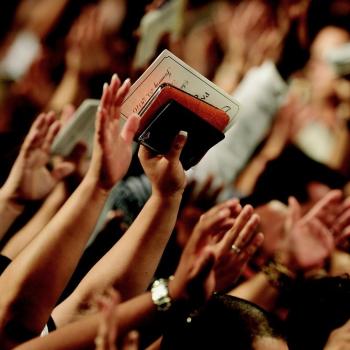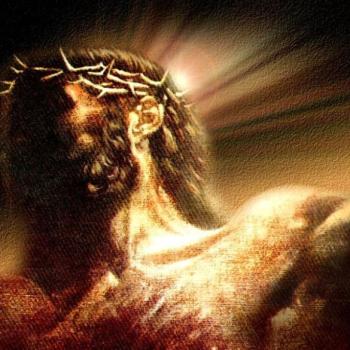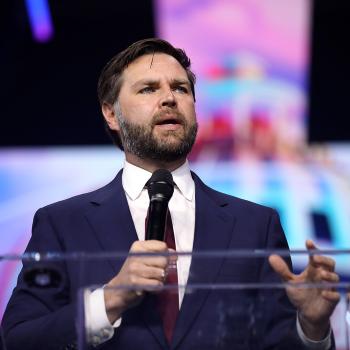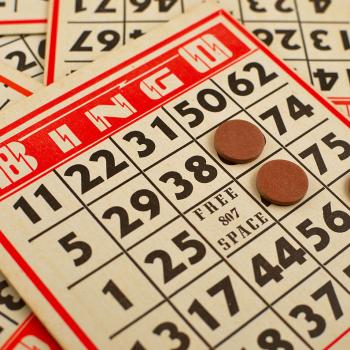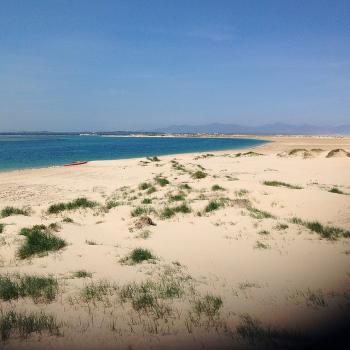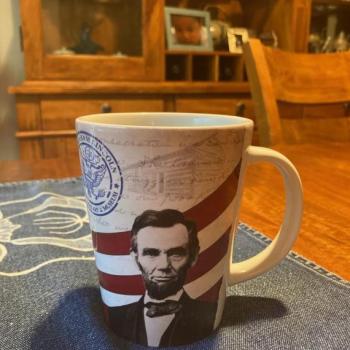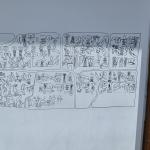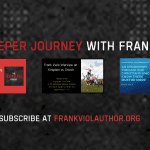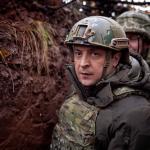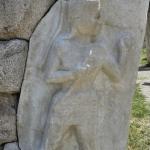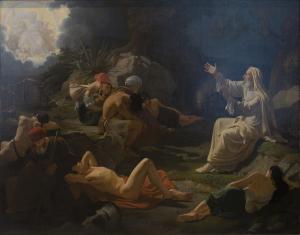
This post on Ezekiel’s apocalyptic vision of dry bones coming to life highlights how honesty and humility help foster hope amid the harrowing circumstances of life.
Honesty and the Apocalyptic
I was reading Ezekiel during my morning devotions this past week. Such an apocalyptic book, which stretches the imagination. Such apocalyptic stretching, while imaginative, is completely truthful and honest in accounting for boundary experiences hovering between life and death.
I must confess that I have always liked the apocalyptic. Take for example my favorite movie in high school, Apocalypse Now, which featured The Doors’ haunting song, “The End.”
I was rather melancholic back then, perhaps morbid at times. But I doubt if I was as morbid as Robert Duvall’s character in the film, Lieutenant Colonel William “Bill” Kilgore. He spoke the classic line, “I love the smell of napalm in the morning.” Why? Because it “smells like…victory.” Talk about the tragic horrors of war and how it twists people.
All too often, tragedy twists and contorts us. I fear that to be the case in my life as I continue to do whatever possible to aid my son, his wife, and daughter amid ongoing suffering and trauma. Over the past three years, I have often written honestly about Christopher’s traumatic brain injury and its aftermath for the entire family.
Occasionally, I hit a wall in caring for them. The past two weeks have felt like the walls of Jerusalem were beginning to crumble around me. It was good to read Ezekiel, as misery loves company! Ezekiel honestly sums up the people’s angst: “Our bones are dried up and our hope is gone; we are cut off” (Ezekiel 37:11; NIV).
Jerusalem had been sacked. The nation was in exile. God’s glory had departed. So much destruction and despair. And yet, Ezekiel does not let the divine negation have the last word. Divine negation gives way to divine affirmation. Ezekiel seeks to account honestly for all the variables in play, from destruction and despair to reconstruction and inspiration.
God’s people would make their way back to their homeland. They would rebuild the wall and the temple. God would restore the nation’s fortunes under their Davidic king. They would be God’s people, and the LORD would be their God (Read chapter 37). The following verses from Ezekiel 37 provide a fitting overview:
The hand of the Lord was on me, and he brought me out by the Spirit of the Lord and set me in the middle of a valley; it was full of bones. He led me back and forth among them, and I saw a great many bones on the floor of the valley, bones that were very dry. He asked me, “Son of man, can these bones live?”
I said, “Sovereign Lord, you alone know.”
Then he said to me, “Prophesy to these bones and say to them, ‘Dry bones, hear the word of the Lord! This is what the Sovereign Lord says to these bones: I will make breath enter you, and you will come to life. I will attach tendons to you and make flesh come upon you and cover you with skin; I will put breath in you, and you will come to life. Then you will know that I am the Lord.’” (Ezekiel 37:1-6; NIV)
The book of Ezekiel closes with a wondrous line that conveys resilient hope: “The Lord Is There” (48:35; NIV).
Humility and the Apocalyptic
My favorite line in this passage is “Sovereign Lord, you alone know.” It reminds me of what a neurosurgeon said a few weeks after Christopher’s traumatic brain injury. He said that we know so little about the brain and that providing a prognosis early on was above his paygrade. He kicked it upstairs to the heavens. He also apologized for the statement a well-meaning though misguided surgeon uttered following the initial surgery in the southwest, airlift, and admittance to the hospital in our area, namely that Christopher would never gain consciousness. The surgeon was wrong. He attained minimal consciousness early on and has retained a minimal form of consciousness for over three years now.
Interestingly, those who know the most about the brain, neurosurgeons and neurologists, have often been the most humble and circumspect in offering a prognosis. They are aware not simply about the brain’s incredible complexity, but also just how little they know about it. The same is true of the prophet Ezekiel in dealing with the depth and breadth of the human tragedy and the divine mystery. He operates with honesty and humility at every turn.
Hope and the Apocalyptic
I have always understood that the probabilities of meaningful recovery are slim, but that the possibilities are real in Christopher’s case. One neurologist indicated it could take many years, but that he believes Christopher will experience meaningful recovery.
In the end, no one really knows what the long-term outcome will be for Christopher. But all I do know is that if I give up and sing with Jim Morrison “This is the end” I am shutting the door on the possibility of Christopher experiencing a meaningful life again someday. Honesty and humility help me keep hope alive.
Will Christopher experience a meaningful quality of life someday? “Sovereign Lord, you alone know.” All I know right now are the struggles, the agony, the glimmers of hope from January 2021 to today. All I know is what I need to do tomorrow and the next day and next week and more to help move us in that direction. I also need to look back and contemplate where we have come from to get to this day.
Today I recounted some of the seemingly small though significant steps of progress along the way. Like God’s promise to his people Israel recorded in Ezekiel, “I will make breath enter you and you will come to life,” God put breath back into Christopher so that he could breathe on his own. My son has been breathing on his own since shortly after being airlifted to the Pacific Northwest back in early 2021. He has such incredibly strong lungs to go along with his lion-sized heart.
In addition, I take comfort in recalling how a neurosurgeon was finally able to reinsert the skull flap (removed during surgery) back in the spring of 2021. The fear existed that too much time had elapsed since the initial surgery and that there would not be enough skin to cover the flap. But one specialist assured the neurosurgeon that there was indeed enough stretchable skin. It calls to my mind God’s promise of old recorded in Ezekiel: “I will cover you with skin.” God also covers my cracked faith with the thin though elastic skin of hope.
I pray constantly that God will continue to rebuild the temple of Christopher’s body, just like that temple of old in Jerusalem. The medicine intended to stimulate his brain continues to provide some measure of hope. On the whole, when it is administered, he becomes more animated and alert. And now, Botox appears to be slowly working its magic, along with the Baclofen pump, to decrease spasticity.
Rome wasn’t built in a day. Nor was Jerusalem and its temple rebuilt in a day. The same will be true of Christopher. Soon we will begin trying to provide stimulation through sound therapy. “Can these bones live?… Sovereign Lord, you alone know.”
Like Ezekiel’s apocalyptic vision and his response suggest, honesty and humility serve to bring hope back from the dead amid the boundary experiences of life.





